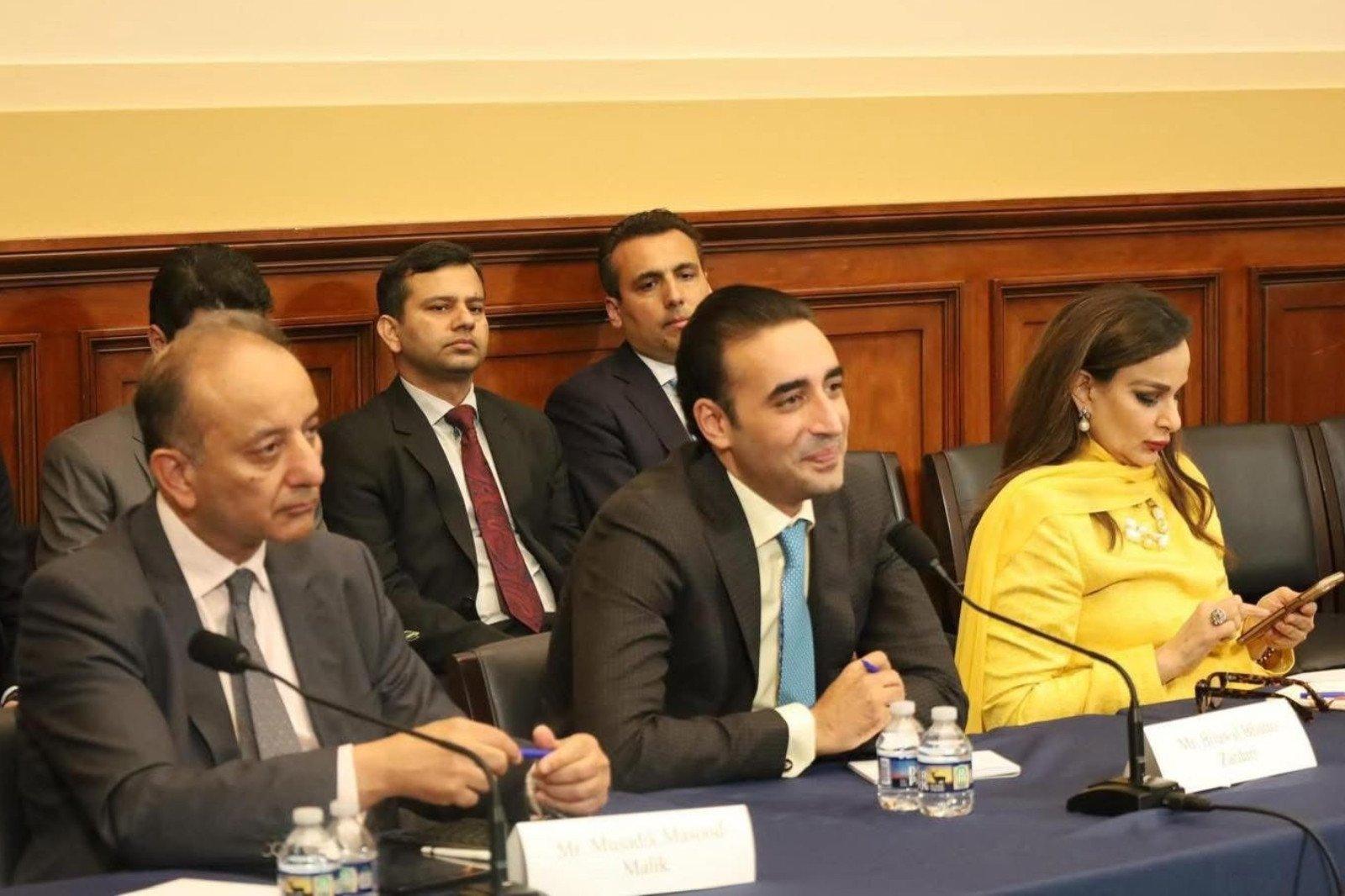In a series of high-level meetings with members of the US Chamber’s Foreign Affairs Committee, Pakistan Peoples’ President (PPP) and former Minister of Foreign Affairs, Bilawal Bhutto Zardari, warned of India’s increasingly aggressive posture, warning that it could destabilize the entire South Asian region.
Living a Pakistani delegation Multipartite in Washington, Bilawal urged American legislators to support Pakistan’s “peace mission” and facilitate a significant dialogue to prevent the climbing of hostilities between nuclear arms neighbors.
During discussions with several American key legislators, including members of the Jack Bergman Congress, Tom Suozzi, Ryan Zinke, Maxine Waters, Al Green, Jonathan Jackson, Hank Johnson, Stacey Plaskett, Brian Mast, Brad Sherman, Gregory Meeks, Henry Cuellar and the senator Tom Cotton Recent provocations.
Had a frank and substantial exchange with the senator @TomCottonar on peace and security in South Asia. Appreciated the American role, in particular the president @RealdonaldtrumpBy facilitating understanding of the ceasefire as a springboard towards lasting peace. Highlighted the climbing of India … pic.twitter.com/ezzbgooqcc
– Bilawalbhuttozardari (@bbhuttozardardari) June 5, 2025
A key concern was the unilateral suspension of India in the Indus water Treaty, which Bilawal called a “violation of international law”.
“India establishes a dangerous precedent of using water resources as a weapon,” he told legislators. “The suggestion to close water for 240 million Pakistani is an existential threat. If India takes this stage, it is equivalent to a declaration of war.”
While recognizing the “positive role of the United States in the reduction of tensions between Pakistan and India” following the recent military deadlock, the president of the PPP stressed that the cease-fire was only a “beginning”.
“South Asia, India and Pakistan, and indirectly the whole world, are more unsuccessful today than when this crisis has started,” he said. “The threshold of the war on a large scale between Pakistan and India has never been so weak in our history.”
He warned against a dangerous precedent fixed, where “any incident of terrorism anywhere in India, whether it was proven or not, is considered a significant war”.
Stressing the urgency of the question, Bilawal informed the American legislators that Prime Minister Shehbaz Sharif had mandated the delegation with a “peace mission”.
“This mission aims to find solutions to problems through dialogue and diplomacy with India,” he said. “We urge American legislators to continue their efforts to establish peace and stability in South Asia and support us in this peace mission.”
“If America puts its strength behind peace, it can convince India that solving our problems is the right thing to do,” he said, adding: “A solution to the problem of cashmere is in the interest of all of us.”
The former Minister of Foreign Affairs has called on the United States to “facilitate significant and constructive dialogue between Pakistan and India” and to “prevent India from pursuing policies that will destabilize the region and the world”.
Also read: South Asia in Brink on cashmere and Industry Water Treaty, Bilawal warns American legislators
Meanwhile, senator Sherry Rehman addressed a press conference, describing the recent conflict with India as a simple “trailer” for the coordinated response of Pakistan.
She said: “This war was part of India’s strategy to keep the region in Bollywood style tension”, stressing how Indian media had promoted war feelings while minimizing the story of peace.
She stressed that Pakistan’s military response was “legal and limited”, but warned the catastrophic consequences that any misunderstanding between the two nuclear powers could trigger. “A nuclear conflict in a densely populated and sensitive region like South Asia would be uncontrollable,” she warned.
Sherry also expressed his gratitude for the intervention of the United States, which helped negotiate the ceasefire, but warned: “If there is no deliberate negotiation process and in principle, this trailer could soon become a global tragedy.”
She also pointed out that a solution to the question of cashmere requires a “serious and multilateral negotiation framework”, noting the reluctance of India to engage in such discussions and its refusal of third mediation, which it considered essential to any significant process.
Learn more: India poses ground for the “first nuclear water war”, explains Bilawal
Last month, the tensions between Pakistan and India and intensified following the deadly Attack of Pahalgam in Indian illegally occupied the Jammu and the cashmere (iiojk) in which 26 tourists were killed.
On May 7, India launched air strikes on Pakistani soil, which prompted Pakistan to counter with Operation Bunyanum Marsoos. A ceasefire was reached on May 10, facilitated by the United States.




